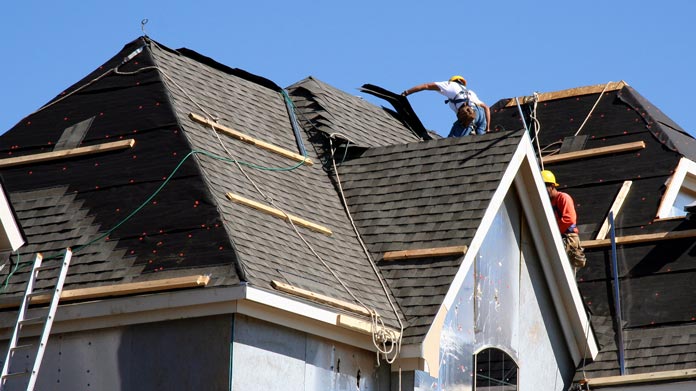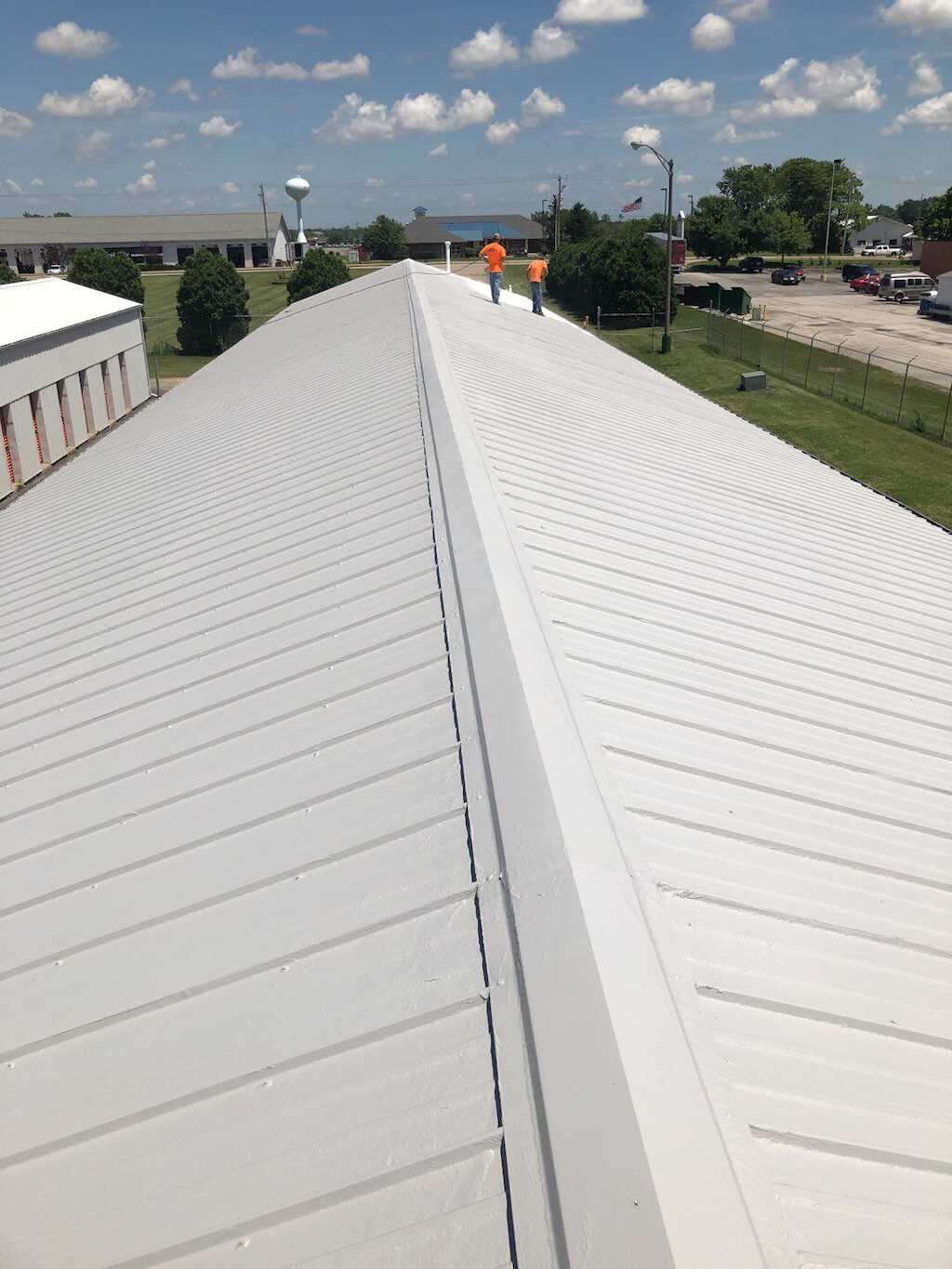All Categories
Featured
Table of Contents
- – Kinds Of Roofing Products Utilized
- – Common Roofing Products Explained
- – Picking the Right Product: What Matters?
- – Material Contrast at a Glance
- – Essential Security Protocols for Roofing Contr...
- – Protecting Against Falls and Slips
- – The Unnoticeable Dangers: Weather Condition a...
- – Personal Experience in Practice
- – Quick Referral Table: Safety Gear Must-Haves
- – Training and Accreditation: The Bedrock of Kno...
- – Core Elements of Roofing Training
- – Why Certification Matters Beyond Compliance
- – Expert Tips for Aspiring Roofers
- – Vital Roof Strategies and Accuracy Tools
- – Techniques That Make a Difference
- – Expert Insights in Action
Kinds Of Roofing Products Utilized
When you think about the roof over your head, have you ever stopped to question what stories the shingles or tiles could inform? Roofing materials, chosen by proficient roofing contractors, are even more than simple shelter components-- they paint a picture of climate, culture, and workmanship. From the rugged texture of asphalt to the streamlined shimmer of metal, each material brings its own tale.
Common Roofing Products Explained
Flat Roof Repair In Mayo MDRoof Repair In Mayo MD
Flat Roof Repair Contractor In Mayo MD
New Roof Replacement In Mayo MD
Roof Replacements In Mayo MD
Not all roof products are created equivalent. Some whisper tales of durability, others boast eco-friendly virtues, while a few stand as monuments to visual appeal. Here's a fast rundown of the most prevalent types:
- Asphalt Shingles: The workhorse of roofing-- inexpensive, versatile, and widely utilized. They resemble the dependable boots of a roofing contractor, trustworthy in the majority of weather.
- Metal Roofing: Sleek, modern, and incredibly long lasting. It's the armor that secures structures through years of storms and sunlight.
- Clay and Concrete Tiles: Frequently identified on Mediterranean-style homes, these tiles are like classic sculptures-- heavy but captivating, with a lifespan that equals a century.
- Wood Shingles and Shakes: For those who prefer a rustic, natural look, wood roofing includes heat but needs more care and know-how from roofers.
- Slate: The aristocrat of roof materials, slate's natural stone provides elegance however requires proficient hands to set up appropriately.
Picking the Right Product: What Matters?
Is it simply about sturdiness, or does design tip the scales? Sometimes, the choice feels like choosing a favorite kid-- each product uses distinct advantages. Roofers typically weigh elements such as:
- Climate Compatibility: Will the product withstand rain, snow, or blazing sun?
- Setup Complexity: Some materials, like slate, demand workmanship refined over years.
- Environmental Impact: With increasing consciousness, choices like recycled metal or sustainably sourced wood gain appeal.
- Aesthetic Consistency: The roofing material should sing in tune with the home's architecture.
Material Contrast at a Glance
| Product | Toughness | Cost Variety | Installation Problem | Environmental Impact |
|---|---|---|---|---|
| Asphalt Shingles | 15-30 years | Low | Easy | Moderate |
| Metal Roofing | 40-70 years | Medium | Moderate | High (recyclable) |
| Clay Tiles | 50-100 years | High | Difficult | Low |
| Wood Shingles | 20-40 years | Medium | Moderate | Moderate |
| Slate | 75-200 years | High | Extremely Hard | Low |
In the end, the option of roofing product is a dance in between functionality and enthusiasm. The roofers - Mayo MD Roof Repair who lay these materials down bring technical ability and an artist's eye, crafting not simply security but an enduring legacy for the home beneath
Essential Security Protocols for Roofing Contractors
Ever felt the vertigo creeping in as you climb up that ladder? That's the silent suggestion that roof safety isn't just a list-- it's survival. The roofing system is a place where one mistake can turn a routine job into a catastrophe. From the minute you step onto a shingle, the risk of falling looms large, however there are methods to tame that threat.
Protecting Against Falls and Slips

Ask any experienced roofer: the most regular threat is falling-- either from edges or through weak points. The instinct to rush can be a quiet foe. Here's a professional rundown to keep you stable:
- Usage harnesses with proper anchor points rated for vibrant loads.
- Examine every ladder for stability and safe and secure footing before rising.
- Use shoes with non-slip soles created specifically for roofing surfaces.
- Stay alert for wet or icy patches that can turn a strong action into a slip.
The Unnoticeable Dangers: Weather Condition and Product Handling
Have you ever contemplated how quickly a warm day can become a roof hazard zone? Strong winds can turn loose tools into dangerous projectiles. Handling roofing products like shingles or metal sheets demands not simply muscle but mindfulness. Keep these suggestions close:
- Anchor tools and materials when not in usage to prevent them from moving off.
- Set up work throughout calm weather windows; wind gusts above 20 miles per hour are a red flag.
- Wear gloves developed to improve grip and safeguard versus sharp edges.
- Inspect roofing system decking integrity before stepping to prevent unanticipated breaks.
Personal Experience in Practice
On one brisk fall morning, a coworker underestimated a weak point concealed beneath old shingles. The resulting fall was a plain lesson: never trust what looks strong without a thorough check. Ever since, a "tap test" with the hammer before positioning weight has been my ritual, revealing concealed rot or damage undetectable to the eye.
Quick Referral Table: Safety Gear Must-Haves
| Gear | Function | Expert Pointer |
|---|---|---|
| Full-body Harness | Fall arrest and avoidance | Double-check buckles and webbing for wear before each use |
| Roofing Boots | Slip resistance and foot protection | Select boots with aggressive tread and water resistance |
| Construction hat | Head effect defense | Change after any considerable impact, even if no damage shows up |
| Gloves | Grip and hand defense | Choose for gloves with enhanced palms and versatility |
- Review of CRG Roofing and Siding in Mayo MD by Jen Prox: Very pleased with the service I received from the beginning to the end of my roof replacement project. Jason was very helpful in explaining the process and options as well as working with my insurance company. The crew did a fantastic job removing the old layers and then putting on the new roof. Very pleased with my new roof and they also did a fantastic job cleaning up after. Would definitely recommend CRG.
- Review of CRG Roofing and Siding in Mayo MD by Ukegbu Kalu
- Review of CRG Roofing and Siding in Mayo MD by Mark Tausen: Very impressed with Mr. Jason Grimes. He was very respectful throughout the process. He was persistent in working to obtain a full roof replacement, and had to produce a video to insurance company after initial refusal by them. The workers who came to install the roof did an excellent job, and you never would have known they were there after such, unless you saw the new roof and sign in yard. I would have given a 5 star for whole process BUT the day of installation at the scheduled arrival time, I was notified at that time, that company would not be coming due to impending rain that was to come in later afternoon. Forecast had not changed for days prior and day of. This caused much headache, as I had taken off and had things rescheduled and had to redo all of that for the following day.
- Review of CRG Roofing and Siding in Mayo MD by Abeer Said: Chesapeake remodeling and group Anton Washington were extremely professional in helping my father get a brand new roof, skylight and gutters all covered by his homeowners insurance. We checked with few companies but Mr. Anton and his crew were the most diligent and trustworthy. They did an amazing job and we couldn't be happier. We have recommended Anton and his crew to anyone that needed a new roof. "
- Review of CRG Roofing and Siding in Mayo MD by Brittany Rhodes: I approached Carlo after seeing them repair my neighbors roof! Within two weeks they were able to do an inspection, help me make my insurance claim and set a date for the new roof!! I was really stressing about about the damage and when I could afford to get a new roof and with their help, we were able to have insurance cover the roof. They even were onsite when the insurance came to inspect the roof, which made me feel like they were committed to helping us get the roof covered since there was significant damage. I would highly recommend Carlo and team! Extremely responsive, professional and assertive. Couldn’t be happier! "
Training and Accreditation: The Bedrock of Knowledgeable Roofing Professionals
Ever wonder why some roofers seem to levitate, nailing shingles with precision while others fail? The secret depend on rigorous training and targeted accreditation. Hands-on experience alone won't suffice-- training programs are crafted to mimic the unpredictable nature of roofing work, from unexpected weather condition modifications to fragile substrates.
Consider this: a roofer when shared how an unforeseen gust almost turned a day's work into a disaster. Years of training kicked in-- correct anchoring techniques, quick decision-making-- avoiding injury and safeguarding the roofing system's integrity. That's the real value of accreditation; it's not just paper, it's a survival toolkit.
Core Elements of Roofing Training

- Security protocols tailored to regional guidelines and real-world scenarios
- Product science-- understanding how various roof materials react to aspects
- Installation techniques that differ by roofing system type, pitch, and design complexity
- Problem-solving drills including water invasion and structural stress
- Use of advanced tools and digital measurement systems
Why Certification Matters Beyond Compliance
Isn't it curious how a main certificate can enhance a roofing professional's trustworthiness, yet its true power is often overlooked? Accreditation signals mastery, however it also demands ongoing knowing. Many programs require periodic renewals, ensuring roofing contractors stay existing with developing industry requirements and ingenious products.
Expert Tips for Aspiring Roofers
- Seek training that consists of both class theory and substantial fieldwork
- Practice using diverse roof materials-- what deal with asphalt shingles will not on metal or slate
- Prioritize learning fall protection systems; they're lifesavers more than just policies
- Network with certified roofing contractors-- mentorship speeds up ability acquisition
- Routinely evaluation local building codes; they're the silent structure assisting your every nail
Would you trust your home's shelter to someone who skips this vital step? The roof isn't simply a cover; it's a complex system demanding respect, skill, and above all, proper training and accreditation.
Vital Roof Strategies and Accuracy Tools
Mayo, MD is an non-incorporated community located in Anne Arundel County, positioned at approximately 38.8668°N latitude and -76.5173°W longitude. Situated near the western shore of the Chesapeake Bay, the community offers a blend of residential and countryside characteristics with a focus on water-related activities and scenic views. The area is part of the Baltimore-Washington Metropolitan Area, providing close access to major cities while maintaining a calmer coastal environment. Mayo is known for its proximity to the South River and its tributaries, which are popular for boating, fishing, and kayaking. The community is adjacent to the Mayo Peninsula, a notable geographic feature extending into the Chesapeake Bay, offering waterfront properties and natural habitats. The nearby South River Federation actively works to protect and restore the river’s ecosystem, emphasizing the community’s environmental awareness. Demographically, the area is part of Anne Arundel County, which had an estimated population of around 600,000 as of the 2020 census. The county’s median household income is approximately $100,000, reflecting a relatively affluent population. The community itself is smaller and less densely populated, with many residents enjoying a suburban-rural lifestyle. The area’s housing stock includes single-family homes, often with waterfront access, and there is a mix of longtime residents and newcomers attracted by the Chesapeake Bay lifestyle. Points of interest near Mayo include the Quiet Waters Park, located about 10 miles northwest, offering trails, picnic areas, and a dog park. The Chesapeake Bay Environmental Center, located nearby, provides educational programs focused on the Bay's ecology. Additionally, the community benefits from its closeness to Annapolis, Maryland’s capital, home to the U.S. Naval Academy and historic downtown district. Transportation access is primarily via Maryland Route 214 (Central Avenue), connecting the area to Annapolis and the Baltimore-Washington Parkway, facilitating commutes to larger urban centers. The area experiences a humid subtropical climate, with hot summers and mild winters, typical of the mid-Atlantic region. The community’s unique combination of waterfront living, ecological focus, and proximity to metropolitan amenities makes it a distinctive and attractive location in Maryland.
Ever questioned why some roofs hold up against the rage of storms while others falter? The response lies deep in the mastery of roof strategies and the tools wielded by knowledgeable roofing professionals. Take, for example, the art of shingle alignment. It's not just about laying shingles in neat rows; it's about understanding the subtle play of wind, rain, and sun direct exposure. Misaligned shingles can welcome leaks, which typically creep in undetected till the damage is irreparable.
When it comes to tools, a roofing contractor's toolbox is a treasure chest of accuracy instruments. The modest roofing hammer isn't simply for pounding nails-- it's created with a magnetic nail holder that accelerates deal with high slopes, keeping safety and effectiveness in consistency. And then there's the chalk line tool, an easy string that marks completely straight lines. Without it, even the most knowledgeable roofing professional might have a hard time to maintain symmetry throughout a sprawling surface area.
Best Flat Roofers In Mayo MDFlat Roof Repair Service In Mayo MD
Flat Roof Repair Mayo MD
Flat Roof Companies In Mayo MD
The Flat Roof Specialists In Mayo MD
Techniques That Make a Difference
- Action flashing: Necessary for sealing joints between roof and vertical surfaces like chimneys or walls, preventing water ingress in those vulnerable spots.
- Ice and water guard setup: Applied beneath shingles at eaves and valleys, this membrane guards against ice dams and wind-driven rain.
- Correct nailing patterns: Not all nails are produced equal, and neither are their positionings. Too couple of nails, or poorly positioned, can trigger shingles to loosen up too soon.
Expert Insights in Action

One remarkable job included a steep-pitched roofing system where traditional ladder gain access to was impossible. Using a roof harness system and specialized roof jacks, the team worked safely on near-vertical surfaces, a testament to how security equipment transforms intimidating tasks into workable ones. Have you ever paused to think about just how much the ideal tool can enhance both quality and morale on a job site?
| Tool | Purpose | Pro Suggestion |
|---|---|---|
| Roof Hatchet | Driving nails, cutting shingles | Utilize the hammer side to tap gently to avoid breaking shingles |
| Energy Knife | Cutting roof products | Change blades regularly to ensure tidy cuts |
| Air Nailer | Speedy and constant nailing | Examine atmospheric pressure routinely to prevent over-penetration |
Table of Contents
- – Kinds Of Roofing Products Utilized
- – Common Roofing Products Explained
- – Picking the Right Product: What Matters?
- – Material Contrast at a Glance
- – Essential Security Protocols for Roofing Contr...
- – Protecting Against Falls and Slips
- – The Unnoticeable Dangers: Weather Condition a...
- – Personal Experience in Practice
- – Quick Referral Table: Safety Gear Must-Haves
- – Training and Accreditation: The Bedrock of Kno...
- – Core Elements of Roofing Training
- – Why Certification Matters Beyond Compliance
- – Expert Tips for Aspiring Roofers
- – Vital Roof Strategies and Accuracy Tools
- – Techniques That Make a Difference
- – Expert Insights in Action
Latest Posts
New Roof in Savage MD: Professional Providers For Bring Back And Preserving Level Roofing Surfaces Ensure Durability And Defense
Roofings in Glen Arm MD: Specialist Flat Roof Restoration Services Guarantee Resilience And Security For Your Organization Home
Flat Roof Contractors in Boring MD: We Specialize In Installing New Low-Slope Roof For Residences And Services
More
Latest Posts
New Roof in Savage MD: Professional Providers For Bring Back And Preserving Level Roofing Surfaces Ensure Durability And Defense
Roofings in Glen Arm MD: Specialist Flat Roof Restoration Services Guarantee Resilience And Security For Your Organization Home
Flat Roof Contractors in Boring MD: We Specialize In Installing New Low-Slope Roof For Residences And Services